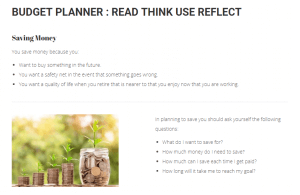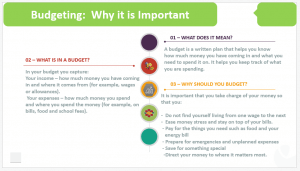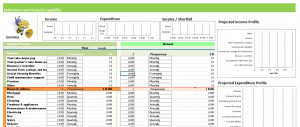The right time to move out of home is different for everyone. Some people leave as soon as they are able, others might wait until they’ve saved enough money to buy their own place.
Before you move out, create a budget to help you work out your moving costs and your new living expenses. You need to be realistic when you do a budget and do not forget to plan for any unexpected and ongoing expenses.

Click here to read more about Your rainy day fund.
Renting a house or flat can be expensive. Make sure you have enough money to support yourself because you will have lots of ongoing costs once you leave home, like rent, insurance, utility bills like water and electricity, food, entertainment and transport. Furthermore, if you have a credit card or a personal loan, you will need to keep up those regular payments on top of your other bills.
What about the one-off costs of moving? Before you leave home, think about the one-off costs of moving, like the costs of hiring a moving truck, connection fees for internet, telephone and electricity, finishing costs and furnishings. In most cases if you are renting, you will be asked to pay 4 to 8 weeks rent in advance and a bond (usually 4 weeks rent) as a security deposit. These will all start adding up.
As a first way forward you may wish to consider sharing with flatmates. House sharing is one of the easiest ways to save money when you move out of home. For example, splitting rent and household expenses for a three-bedroom house with two other flatmates could end up cheaper than renting a one-bedroom unit by yourself.
if you are house sharing, set ground rules with your flatmates at the start, even before you move in together. Make sure you all agree on how you are going to:
- Pay for bills,
- Share the cost of rent and utilities,
- Share responsibility for household chores,
- Withdraw from the rental lease when someone moves out,
- Pay for food (for example, are you going to pay a shared cost as a group, or will everyone shop individually?).
If possible make sure that you enter into a rental agreement with the landlord. A written rental agreement is an official record of what you and the landlord have agreed to. If there is a dispute later, the rental agreement may help to settle it. The contract is also legally binding on you, and your mates if you are sharing. Make sure you understand a contract before you sign it. Check the small print and know what your obligations are. Can you afford the payments? Can you cancel the contract and what happens if you do? Unfortunately, you cannot cancel some contracts if you change your mind.
In signing a contract make sure that the following matters are covered:
- The landlord’s and tenant’s names, addresses and contact information.
- The rental term, the length of time you agree to stay in the apartment before ending your rental agreement.
- The monthly rent amount.
- The date you must pay rent and the method of payment.
- Services, such as electricity.
- Any separate charges.
- The conditions for the termination of a rental agreement.
- When the landlord can increase the rent and by how much.
- The deposit amount and any conditions.
Ask the landlord the following questions before you sign the rental agreement:
- Which repairs are your responsibility.
- How much notice you must give if you want to end your rental agreement.
- Subletting rules.
- When and why your landlord can enter the rental unit.
- How to resolve disputes in case of late payments, damages or eviction notices.
Plenty of resources are available on our website for your to read and download for free.





